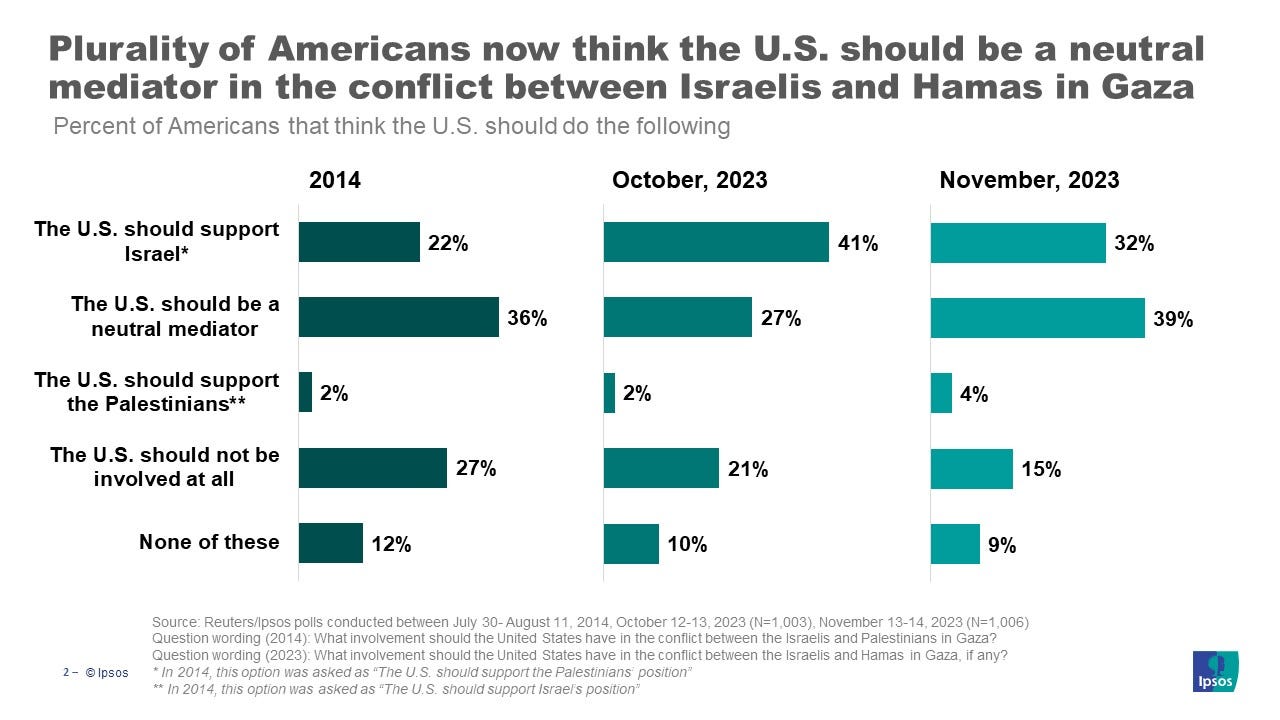After the 2013 trial of George Zimmerman, and the Ferguson riots in 2014, I abandoned the study of libertarian economics and focused on racial issues. What was the point of lowering taxes, if the country was on fire?
I was applying an exponential model rather than a cyclical one. Instead of viewing Ferguson as a cyclical event, which happens every 5 to 20 years, I saw Ferguson as step one in an explosive unraveling of the country along racially polarized lines.
The cost of the Ferguson riots was estimated at $14 million dollars, but this doesn’t factor in hidden costs:
depreciation of property values;
the cost of moving and relocation (including the separation of families and friends);
the opportunity cost of the last 10 years where Ferguson has remained a bombed-out zombie crater with low levels of economic participation.
I imagined that within a few years, the next riot would be 10x worse, reaching $140 million in damages. I underestimated. The BLM riots of 2020 cost over $1 billion dollars.
what i got wrong:
While this is costly and undesirable, put these numbers into context. GDP is $25.44 trillion. $1 billion is 0.0039% of GDP. For a person with an income around $50k, that would be equivalent to losing $200 every five years when your kid played ball in the house and it knocked over an expensive vase, or put a dent in your car while learning to drive. Unfortunate, and the kid deserves to be punished, but it won’t break the budget. If that only happens once every 5 years, that’s tolerable. You don’t evict your child from the house just because of $40 in damages per year, on average.1
There are bigger expenses than race riots. Social Security, for example, is a redistribution of wealth along generational lines rather than racial ones. For someone making $50k, this is equivalent to spending $2,445 every year to take care of the grandparents. Still not disastrous, but 50x more than the cost of race riots.
In terms of existential economic threats, losing our reserve currency system would be much more disastrous. Losing reserve currency status would be a messy divorce from the global economy. Life would be unrecognizable afterward, even if we get “remarried” to a new system as a country. America could survive that, but it would be rough.2
Some believe that America has a limited amount of money, and that if we spend too much, we will hit a hard “debt ceiling.” But the debt ceiling is determined by the success or failure of the reserve currency system. If countries stop trading in the dollar, then the value of the dollar will plummet. If countries keep trading in the dollar, the value will hold. This is not just about defense “stability,” otherwise, Switzerland would produce the world’s reserve currency, since it never gets invaded. Instead, the reserve currency system relies upon America’s offensive capability to project power.
By putting these risks in perspective, I became much less afraid of race riots, and much more afraid of foreign policy missteps. As a result, I am in favor of maximal interventionism. I believe in expanding NATO not just to Ukraine, but also to countries in Asia like Australia and Japan. We’ll have to change the “North Atlantic Treaty Organization” part to “Global Treaty Organization.”
Most Americans, however, are souring on foreign adventures. When I explain that foreign military adventures aren’t just good for the economy, they are the economy, I am met with skepticism and resentment.
There are legitimate criticisms to make of American foreign policy. Iraq and Afghanistan were probably a net negative. The end result was more Iranian influence in Iraq, and the Taliban working with China and Russia.
A rational response to 9/11 would have been to negotiate with Pakistan for the immediate capture of Bin Laden, and to simultaneously engage in some sort of immediately performative strike to appease the populist hawks (Clinton style). But when speaking with anti-war Americans, I am never able to communicate with this level of nuance, because I am hit immediately with the Gribble stare:
“America is gay. The elites are pedophiles, vampires, and 90 IQ idiots. White people are being genocided. They’re turning kids transgender. Infrastructure is collapsing. COVID was a hoax. Bill Gates is trying to kill us with vaccines. You want me to own nothing and be happy. I won’t eat the bugs. I won’t eat lab grown meat. I won’t live in a pod. America is a shopping mall. We don’t have a country anymore. There’s nothing to fight for. America is godless. I don’t believe anything the media says. I bet they’re lying about the Chinese too. At least Russia/China/Iran has an ethos. No Russian ever called me racist. At least they have traditional values over there. I won’t fight for Janet Yellen. I won’t fight for Victoria Nuland. The military-industrial complex is an Anglo-Jewish racket.”
These sentiments are spiritually Marxist in nature .They oppose “the elite” as parasitic, and believe “the people” are inherently morally good, and must unite against the elite.
Traditional economic Marxist positions are things like,
Workers should own the means of production. Property should be abolished. The wealthy should have their assets confiscated by the state. The state should nationalize all industry. All wages should be equal.
Whereas traditional Marxism focuses on the quantitative materialism of the economy, spiritual Marxism focuses on “class warfare” from an almost entirely “aesthetic” perspective.
The left has its own theories, which the right calls “cultural Marxism”:
White cops are committing genocide against unarmed black men. White supremacy is committing genocide in Palestine. Coca Cola is committing genocide in South America. Non-verbal consent is rape. It should be illegal for Leonard DiCaprio to have an 18 year old girlfriend. Hearsay is legitimate evidence 20 years after the fact. The statute of limitations should be removed for sexual assault allegations (but not murder). Raytheon should be 50% female. White men are responsible for all evil.
The clear distinction between spiritual Marxism on the right, and cultural Marxism on the left, is self-interest vs. paternalism. Spiritual Marxism is self-interested: “I don’t want this. I don’t like that. Stop doing this to me. Leave me alone.” On the left, all of the morality is paternalistic: “Stop hurting weak people. Respect weak people. Help weak people.”
Karl Marx never said, “Rich people of the world: feel bad! Help the poor!” No, he said, “Workers of the world, unite!” Marxism is a self-interested ideology, not an ideology based on shame and guilt. While spiritual Marxism is the religion of the right, cultural Christianity is the religion of the left.
the collapse of authority.
The west is in a crisis of confidence. Authority is hated; trust is declining; church attendance is down; military recruitment is falling short. These trends are occurring too quickly to be reduced to pure biological phenomena. Instead, they must be explained by sociological changes. It would be useful to view the current crisis of authority in comparison to the historical collapse of confidence in the Catholic Church which occurred in the 15th century.
First, nominalism in the 12th century undermined the Platonic metaphysics of Christianity, handing the keys over to scriptural fundamentalism. The result was a “back to the Bible” movement which culminated in Protestantism. At the same time, some elite esotericists, rejecting nominalism, sought to re-discover Platonic metaphysics in a “back to the classics” movement.
The history of western philosophy between the 12th and 15th century is a slow-burning three-way Civil War between nominalists (back to Bible) and humanists (back to classics) and conservatives (back to church). Nominalists and the humanists ate away at the central authority of the Catholic church. Both strands of philosophy, while opposed to each other on metaphysical grounds, had a common political interest in freeing themselves from the “moderate” dogmatists.
Both nominalists and humanists wanted to take things “to their logical conclusion,” while the Catholic church wanted to maintain a dogmatic adherence to an untenable centrism. The center did not hold, and humanists spun off into alchemy, Kabbalah, and eventually Freemasonry, while nominalists spun off into Protestantism, Calvinism, and Puritanism.
The Renaissance, and the return of classical civilization, was paralleled by early populist “proto-Protestant” preachers like John Ball. Ball was a recognizable Marxist before Marx, who wanted to violently exterminate all members of the upper class to free them from oppression. He traveled in the same circles as John Wycliffe, who wrote the first English Bible in 1382. Since both Graeco-Roman paganism and Marxist-Protestantism were schismatic, they were both opposed by the Catholic center, despite the fact that the two movements were opposite in their ultimate desires.
The resolution of this crisis of authority took quite a while to crystalize. The Catholic Church initially opposed Tycho Brahe and Galileo, but eventually accepted the claims of the humanists. The Protestant churches were established in the 16th century, and became the basis for new authority.
That authority was then undermined by the growth of secular nationalism, with its first violent outbursts in the American Revolution and French Revolution. Secular nationalism came to overshadow Protestantism, culminating in three competing systems:
The Soviet Union, which justified itself on a Marxist-Nationalist concept of “the Proletariat”;
Nazi Germany, which justified on the Racial-Nationalist concept of “the folk”;
America, which justified itself on the Civic or Liberal-Nationalist concept of “we the people.”
With the defeat of Nazi Germany, the Cold War anti-communism justified American authority. The failure of Marxism since 1991 has deflated the previous structure of authority, and given rise to a traitorous class of disaffected saboteurs on the right. Without the Cold War crusade to whip the right into shape, giving them role models like Rambo and Conan, the right wing has become actively hostile to the American government.
What are these people going to do?
If BLM is the ultimate expression of cultural Christianity, January 6th is the ultimate expression of spiritual Marxism. Whereas BLM just burns department stores, a direct attack on federal buildings undermines public trust. If Walmart burns down, ok, you rebuild it and life goes on. If the White House burns down, that is an entirely different magnitude of chaos.
It was difficult to predict BLM 2020 from Ferguson 2014. It is difficult to predict whether something like January 6th could happen again, and if so, how soon. There is an argument to be made that with Trump in charge, he is less likely to incite his supporters in a riot. Perhaps Trump alone has the capacity to foment a right-wing riot. When he fades from the scene, things will calm down.
Still, even if things “calm down,” what is the positive vision that will fill the vacuum left by Trump? Richard Dawkins imagined that things would “calm down” when Evangelicals became atheists or agnostics. Instead we got increasing moral puritanism, not less.
Non-religiousness is entirely compatible with Qanon kookery, antisemitism, and white nationalism. At some point, you have to stop telling people to “just calm down,” and you have to start providing them with answers to life’s big questions.
Please leave your solutions in the comments below.
This is true even if your child has Down’s Syndrome and will never grow up to be a functioning adult. Once you give birth, it’s your responsibility. I am pro-choice, however.
Peter Zeihan suggests we will re-industrialize.









I don’t think that this analysis of the importance of the dollar is correct. Everything I’ve read says reserve currency is a minor issue when it comes to living standards, and I don’t see the connection between it and US interventionism anyway. Who have you been reading on this?
The rising tide of right-wing populism is a consequence of a fundamental breakdown of trust and expectations between the people and elites and it's largely centred around immigration and identity.
If right-wing populism was driven by concerns about wokeness it would have withered away as did wokeness (at least in its most aggressive manifestations, retreating circa 2022).
Any society functions on an unwritten social contract. Expectations, rights and duties. Large-scale immigration transforms society and often leads to social and political instability that degrades said social contract.
Nationalism is dying and elites are not being honest about it. They also have no other vision beyond vague appeals to "our values" and the most tepid and watered-down version of patriotism to still keep the idea of having a nation alive for purely practical reasons (national armies to fight geopolitical adversaries/taxation/social cohesion). They're not brave enough to advocate for global federalism because that would require leadership and risk. They're lying to the people and they're out of ideas.
Right-wing populists are delusional in their own way, believing we can return to a world prior to the internet and commercial air travel. They're also unwilling to talk about pension systems/social security which incentivise governments to continually engage in biomass QE via immigration of disproportionately younger people to prop up gerontocracy.
I don't know the exact practical solutions to these massive problems but we need vision and leadership from our elites which is something we're lacking greatly.